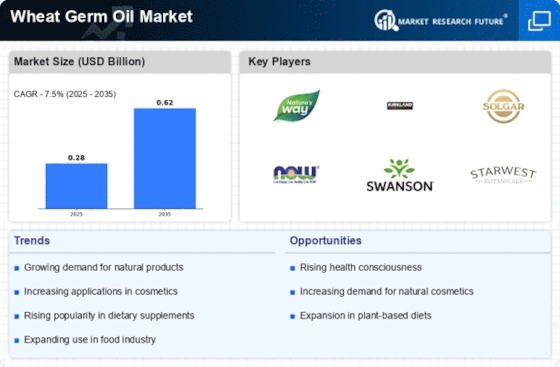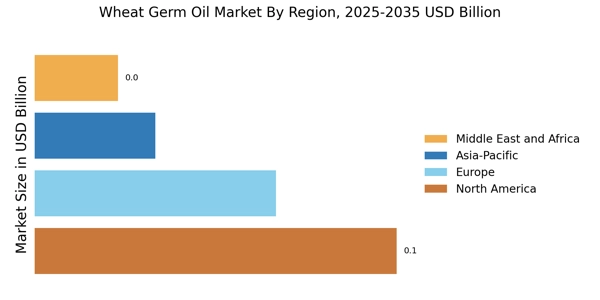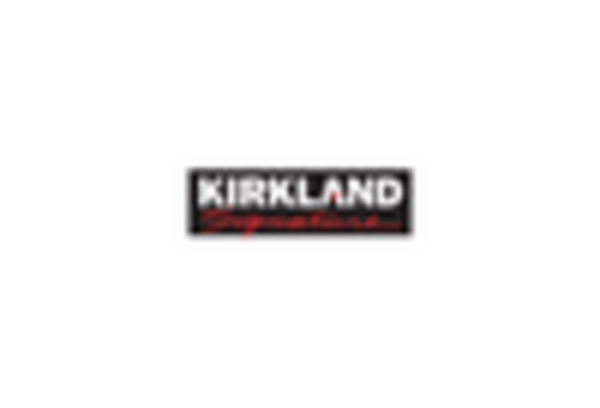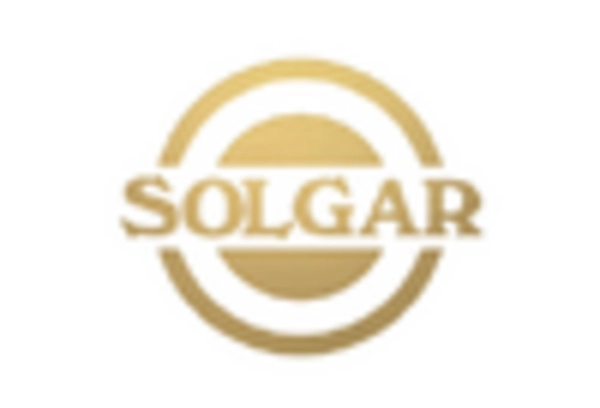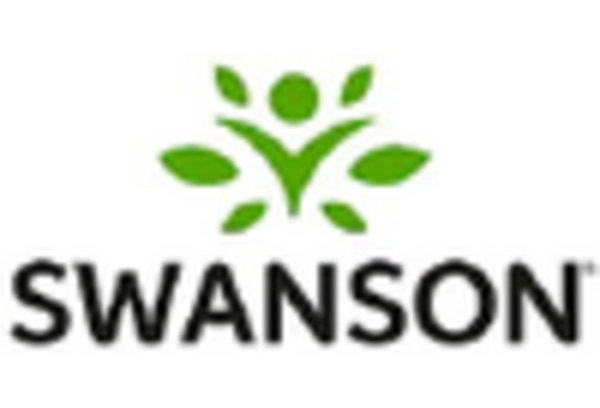Sustainability and Ethical Sourcing
The Wheat Germ Oil Market is increasingly influenced by sustainability and ethical sourcing practices. As consumers become more environmentally conscious, there is a growing demand for products that are sourced responsibly and produced sustainably. Wheat germ oil, derived from the byproduct of wheat milling, presents an opportunity for sustainable production, as it utilizes parts of the wheat plant that might otherwise go to waste. This aligns with the broader trend of reducing food waste and promoting circular economy practices. Companies that prioritize sustainability in their sourcing and production processes are likely to attract a more discerning consumer base, thereby enhancing their market position within the wheat germ oil sector.
Expansion in Food and Beverage Sector
The Wheat Germ Oil Market is significantly influenced by the expansion of the food and beverage sector, where wheat germ oil is increasingly utilized as a functional ingredient. Its incorporation into various food products, such as salad dressings, baked goods, and health supplements, is on the rise. The market for functional foods is expected to grow, with estimates suggesting a compound annual growth rate that could exceed 8% in the coming years. This growth is attributed to the rising consumer preference for foods that offer health benefits, thereby enhancing the demand for wheat germ oil as a nutritious additive. As manufacturers seek to innovate and differentiate their products, wheat germ oil serves as a valuable ingredient that aligns with current health trends.
Growth in Personal Care and Cosmetics
The Wheat Germ Oil Market is experiencing growth due to its rising application in the personal care and cosmetics sector. Wheat germ oil is valued for its moisturizing and nourishing properties, making it a popular ingredient in skincare products, hair care formulations, and cosmetics. The Wheat Germ Oil Market is projected to witness substantial growth, with natural and organic products gaining traction among consumers. This trend is likely to drive the demand for wheat germ oil, as brands seek to incorporate effective, natural ingredients into their formulations. The oil's antioxidant properties and ability to promote skin health align with consumer preferences for clean beauty products, thereby enhancing its appeal in the personal care market.
Rising Demand for Natural Ingredients
The Wheat Germ Oil Market experiences a notable increase in demand for natural and organic ingredients across various sectors, including food, cosmetics, and pharmaceuticals. Consumers are increasingly inclined towards products that are perceived as healthier and more sustainable. This trend is driven by a growing awareness of the benefits associated with natural oils, such as their rich nutrient profiles and potential health advantages. In 2025, the market for natural ingredients is projected to reach substantial figures, indicating a robust growth trajectory. Wheat germ oil, known for its high vitamin E content and antioxidant properties, is well-positioned to capitalize on this trend, appealing to health-conscious consumers seeking natural alternatives.
Increased Awareness of Nutritional Benefits
The Wheat Germ Oil Market benefits from heightened awareness regarding the nutritional benefits of wheat germ oil. As consumers become more informed about the importance of vitamins and essential fatty acids in their diets, the demand for wheat germ oil is likely to rise. This oil is recognized for its high levels of vitamin E, omega-3 fatty acids, and other beneficial compounds that contribute to overall health. Market Research Future indicates that consumers are actively seeking products that enhance their well-being, which positions wheat germ oil favorably within the health and wellness sector. The increasing focus on preventive health measures further propels the market, as individuals look for natural ways to support their health.


